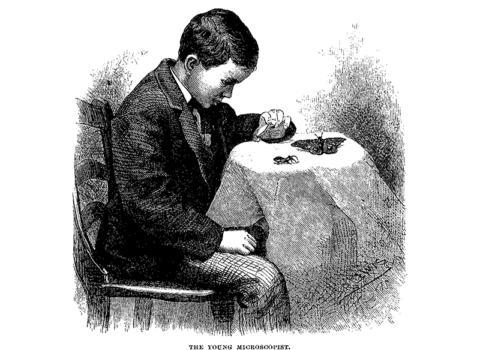The Yellow Fault Line
The crisis in France is gnawing away at what’s left of the lower classes’ pride and possessions
In order to “Understand the Yellow Vests Movement”—this was the promise, made in bold headlines, that appeared on the front page of Le Monde on December 10—I revisited a text by a writer who has contributed no opinion on the subject to the discussion pages of France’s most important daily newspaper. As a matter of fact, the identity and frustration of these unexpected, non-aligned revolutionaries were addressed last summer in a modest essay (eighty-five pages long) written by the novelist Édouard Louis and titled Qui a tué mon père (“Who Killed My Father”). The absence of a question mark is the key to understanding the point of view expressed in the essay. Louis, today a member of the Parisian elite so despised by the demonstrators, has not forgotten his roots in the industrial north. His book is, in a sense, a eulogy for his father, a man physically and spiritually ruined by a life of brutal work in a factory and then, later, by the obligation to sweep streets and collect garbage—for 800 US dollars a month—so that he wouldn’t lose his social assistance.
The Yellow Vests (gilets jaunes) are supposedly enraged by a rise in taxes. But Louis writes about tax reductions and decreased spending: “In August 2017, Emmanuel Macron’s government withdraws five euros a month from the country’s most precarious citizens. On the same day, or nearly the same, it doesn’t matter, he announces a tax cut for the richest people in France.”
This new fiscal policy followed an emblematic confrontation in May between the President of the Republic and two trade unionists in Lunel, a town situated between Montpellier and Nîmes in southern France. “They’re furious,” Louis tells us. “Their way of speaking makes that plain. They also seem to be suffering. Emmanuel Macron replies to them in a voice filled with contempt: ‘You’re not going to scare me with your T-shirt. The best way to afford a suit is to work.’”
And with those words, the red line—or let’s rather say the yellow fault line—is crossed. “He consigns those who can’t afford a suit to shame, to uselessness, to sloth,” Louis writes. “He updates the violent boundary between the wearers of suits and the wearers of T-shirts, the dominators and the dominated, those who have money and those who don’t, those who have everything and those who have nothing. This sort of humiliation, when it comes from the dominators, makes you bend your back even more.”
So why the shock and surprise at the demonstrations among the political class and the media? Édouard Louis’s little book was on sale more or less everywhere. It’s not really necessary to wonder about a crisis fabricated by a political/financial class that incessantly gnaws away at what’s left of the lower classes’ pride and possessions. Édouard Louis doesn’t put a question mark after his title because he’s fully aware of who murdered his father.
Nevertheless, there are some questions that need to be asked, especially about the official left in France, which seems to be as surprised by the gilets jaunes as Macron’s party, La France en Marche (“France on the March”). The socialists’ problem is obvious. Handicapped by unwavering support for the European Union, the limp left, like the American Democrats who supported NAFTA, has lost the confidence of the working class. Ordinary workers have abandoned the left and scattered, some to the right-wing Front National (now the Rassemblement National, or “National Gathering”), some to total abstention from political life. Often underemployed or out of work altogether, such workers have nothing to do with the grand ecological or free-trade projects that stimulate the bobos (the well-off middle-class lefties) as well as the liberal bourgeoisie.
At the same time, Jean-Luc Mélenchon’s far-left LFI (La France Insoumise, “France Unbowed”) should have taken advantage of the Yellow Vests’ ascent. Unfortunately, they seem to have missed the boat. On December 8, a day of mass demonstrations in Paris, Mélenchon was in Bordeaux, chairing a conference of his party, which is very much a minor presence in the National Assembly. Although he tries to associate himself with the Yellow Vests, the head of the LFI is hobbled by his connections to the politics of the “assembled left,” which is in my view the equivalent of political correctness in the United States: image before substance.
Recently excluded from the list of candidates in the next European elections, Djordje Kuzmanovic has quit the LFI in protest against what he calls its insistence on “intersectionality and the non-hierarchization of the struggle.” In an open letter published in Marianne, the weekly news magazine, Kuzmanovic denounced a tendency that “has led the movement to lose itself in secondary conflicts…for example, if the immense majority of French people support the struggle for equality between men and women, most of them understand that the priorities…come down to equality of wages, to the reduction of female poverty, to the eradication of violence whose victims are women, and not to gender-neutral language.”
Well said on the part of someone who walked up and down the Champs-Élysées on December 8, inhaling tear gas in the midst of what was practically a riot. If you don’t have enough money to buy bread, it makes little difference where bread is sold, or in how many varieties.



